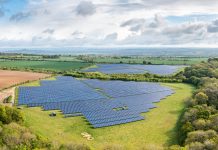 Government is inviting firms to bid for funding to develop demand-side response (DSR) at a household level.
Government is inviting firms to bid for funding to develop demand-side response (DSR) at a household level.
Demand-side response will be enabled by smart meters and more granular metering and settlement, which Ofgem is working out how to implement at household level. A smart, flexible power system, as envisaged by policymakers, will require consumers to take actions in response to price signals. In essence, turn off appliances when the system is tight, or potentially use more power when there is too much on the system. This will probably need to be automated.
A combination of hot water tanks and batteries, for example, could enable bi-directional response, something which aggregators and manufacturers are currently exploring. Meanwhile the growth of electric vehicles will require controlled (or ‘smart’) charging to avoid system stress.
Both energy and non-energy companies are positioning themselves to deliver these services to households. However, there are significant barriers to adoption of DSR at a domestic level, such as metering and settlement, granularity of data, kit standards and testing, visibility of real-time data and complex contractual arrangements.
However, there is some confidence within industry that these barriers can be overcome in the next few years and the department for business, energy and industrial strategy (Beis) is offering funds to firms that can help unlock the gigawatts of flexibility tied up in UK homes.
There is £7.75m available and the competition is open to “projects which demonstrate control of existing domestic loads and also in projects which explore control of domestic loads which could offer substantial load flexibility in the future”, according to the launch document. “Projects that demonstrate novel business models that engage consumers are also encouraged,” it adds.
The deadline for entries is 5 February. There is also an information day on 4 December.
See the competition guidance notes here.
Meanwhile, government has awarded contracts for feasibility studies for ‘innovative’ non-domestic demand side response demonstrators, as part of a £7.6m funding package..
Initial feasibility studies are being led by:
- DuckDuck
- Flexitricity
- Innovatium
- Kiwi Power
- Totem Sustainable Solutions
Similarly Beis has given grants for delivery of energy storage feasibility studies for large-scale future storage demonstrators to:
- Cumulus Energy Storage
- Highview Enterprises
- ITM Power Trading
- SSE Renewables Developments UK
Related stories:
Upside and Powervault installing 1MW of hot water storage and batteries to deliver domestic DSR
Artificial Intelligence for smart grids: can UK start-up beat Google?
Aggregator targets small firms to build DSR from bottom up
Follow us at @EnergystMedia. For regular bulletins, sign up for the free newsletter.



